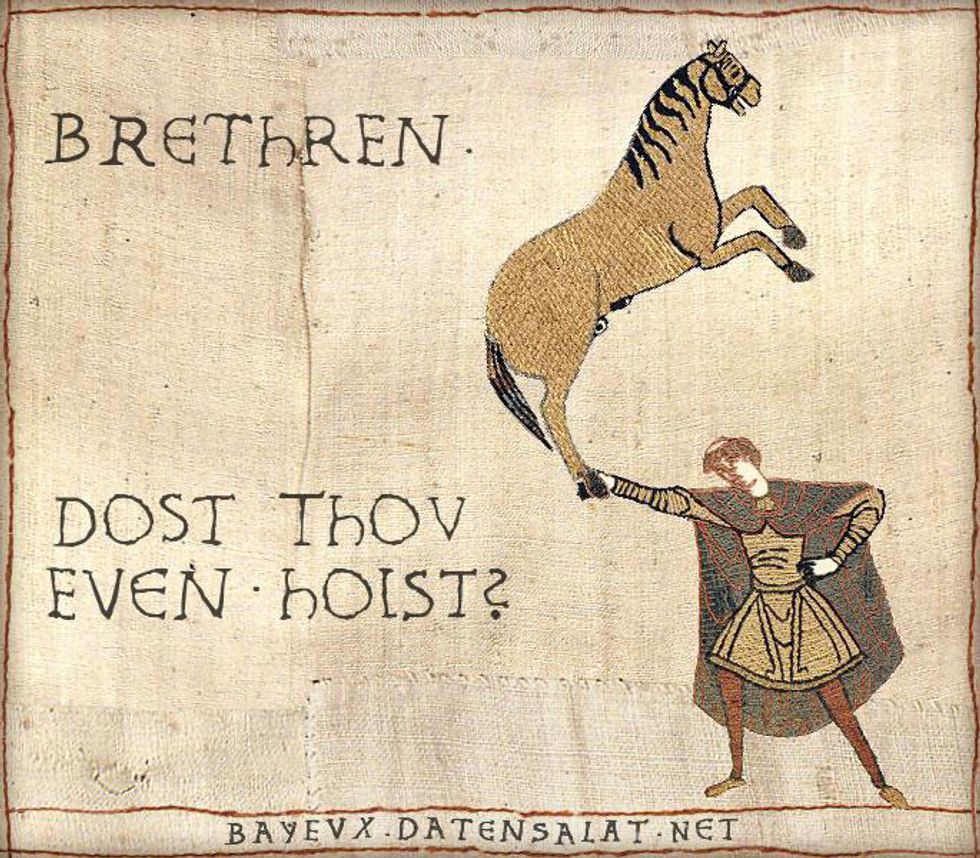In the 21st century, we are bombarded with new and exciting ways to clean our bodies, make ourselves smell different and even alter the way we look. In a standard grocery store, there is an entire aisle devoted to toothpaste, one devoted to shampoos and yet another seven to eight aisles devoted to make-up supplies. Inhabitants of centuries past did not share our love for cleanliness, maybe it's because the technology wasn't available or simple because it wasn't a priority when your life expectancy is only 35 years old. Here are three interesting hygiene habits from the days of old.
1. "A Pocket Full of Posies..."
I believe everyone is at least vaguely familiar with the nursery rhyme that begins with the above phrase and ends with "ashes, ashes, we all fall down." If you didn't know already, this children's rhyme is about the black death. The "posies" are small satchels of flowers that individuals would carry around with them to mask the smell of rotting flesh and human waste that covered city alleys and streets. During the black death, the death toll was so high, the civilians couldn't keep up with burying their dead. Obviously, there was no indoor plumbing so feces tended to pile up and thus grow bacteria, but the causes of the black death are another article altogether.
2. "The Groom of the Stool."
Those that lived during the middle ages, and up through the invention of indoor plumbing, excreted their waste into wooden container similar to the modern "bed-pan." That isn't the interesting part. There was a position of the king's court, given to someone of high ranking (usually a noble's son) whose job is was to follow the king around with his personal "bed-pan" and then clean the king after he had done his business (Briscoe).
3. "Washing" Clothes and Linens in Urine.
It was common practice during the medieval period for clothes to be washed in a combination of urine and water (Briscoe). The washing of the person, as well as linens, was a long process that did not occur very often. I suppose if you think about the use of urine as a substitute for not yet invented cleaning agents, you can rationalize that urine at least contains ammonia and that may take away the queasy feeling in your stomach.
Yes, practices in the medieval period and the middle ages were less focused on hygiene and overall cleanliness but they built some awesome stone architecture. You are now three useless facts smarter than you were before you read this article. You are welcome.























